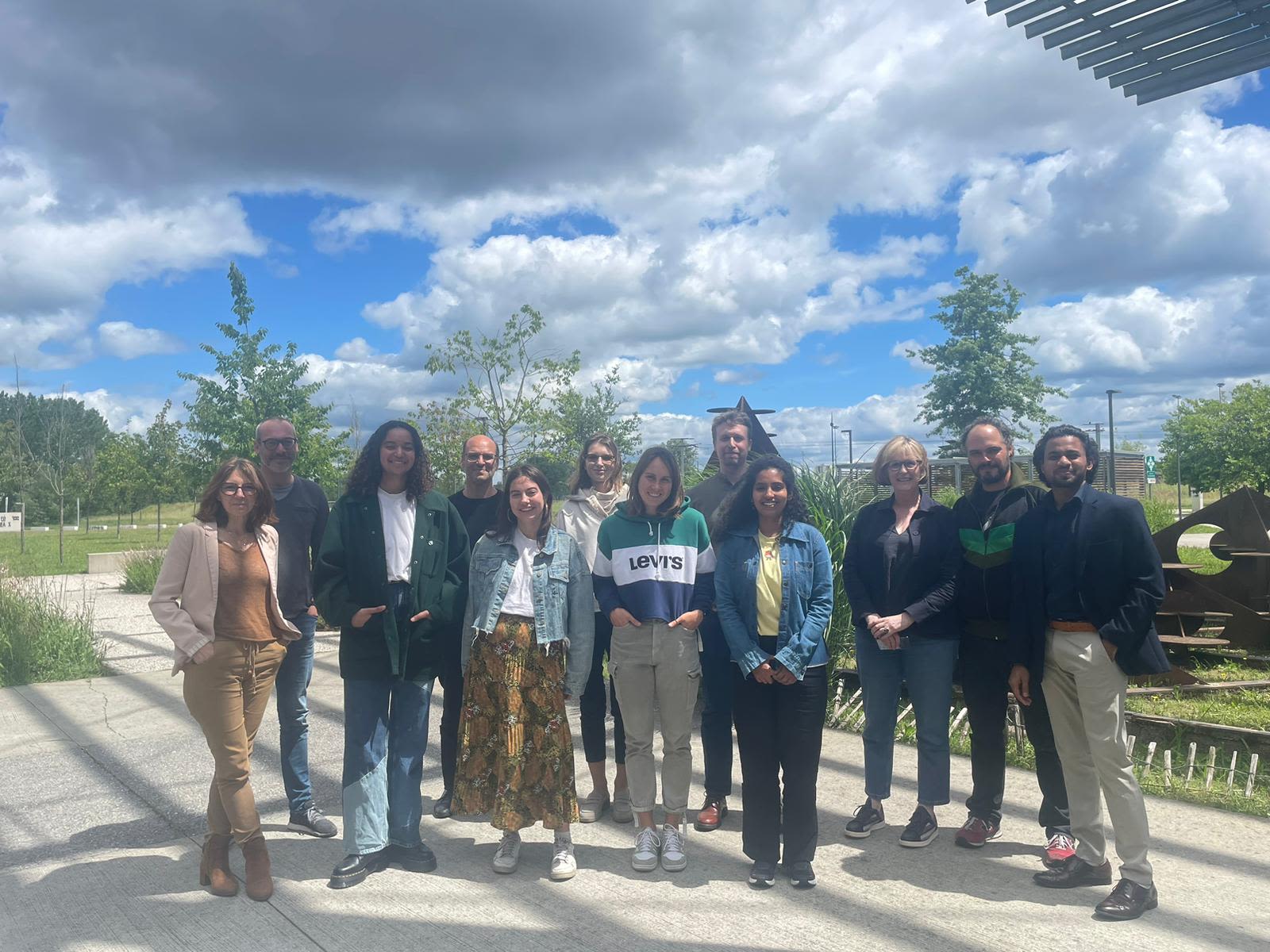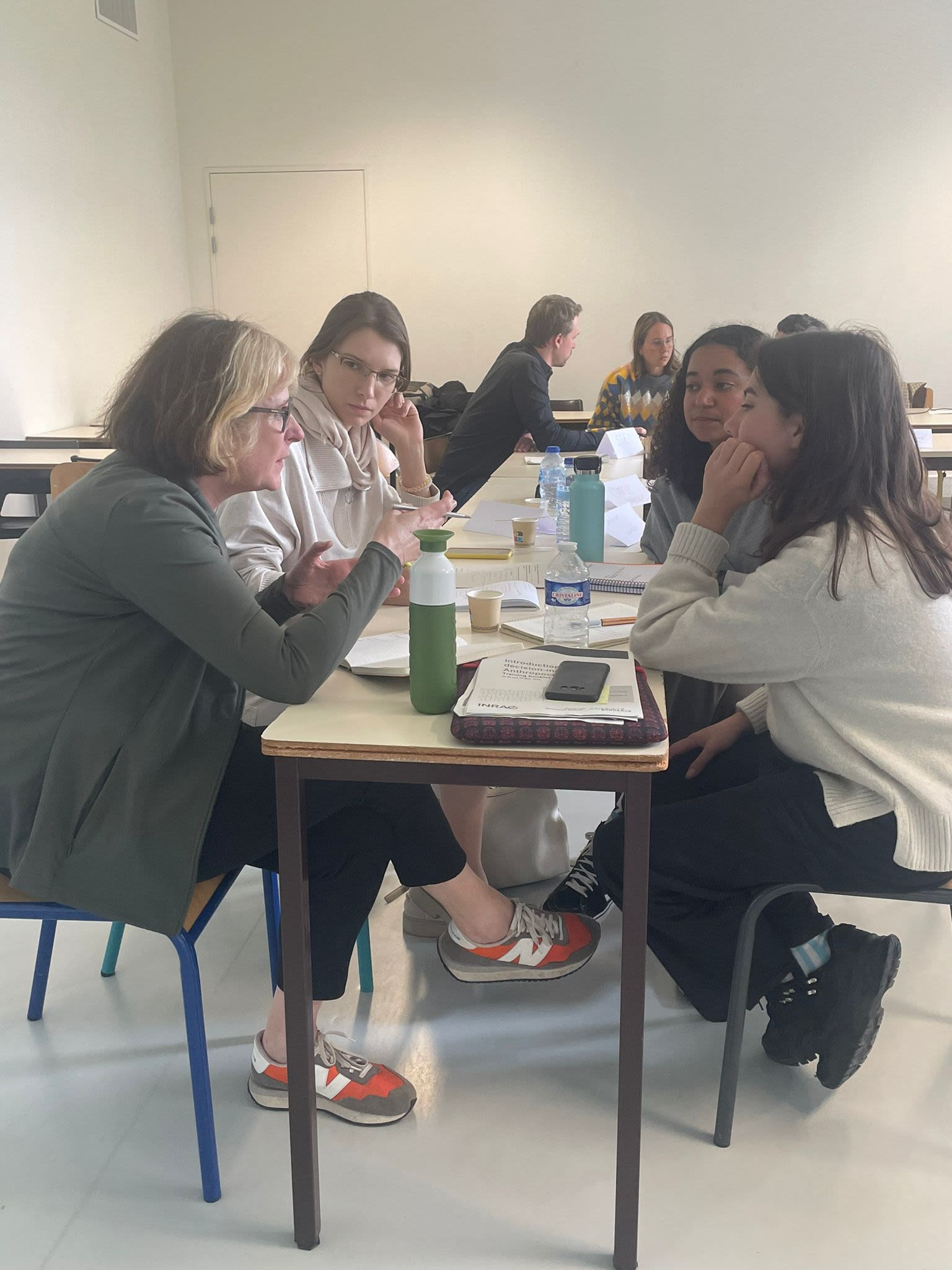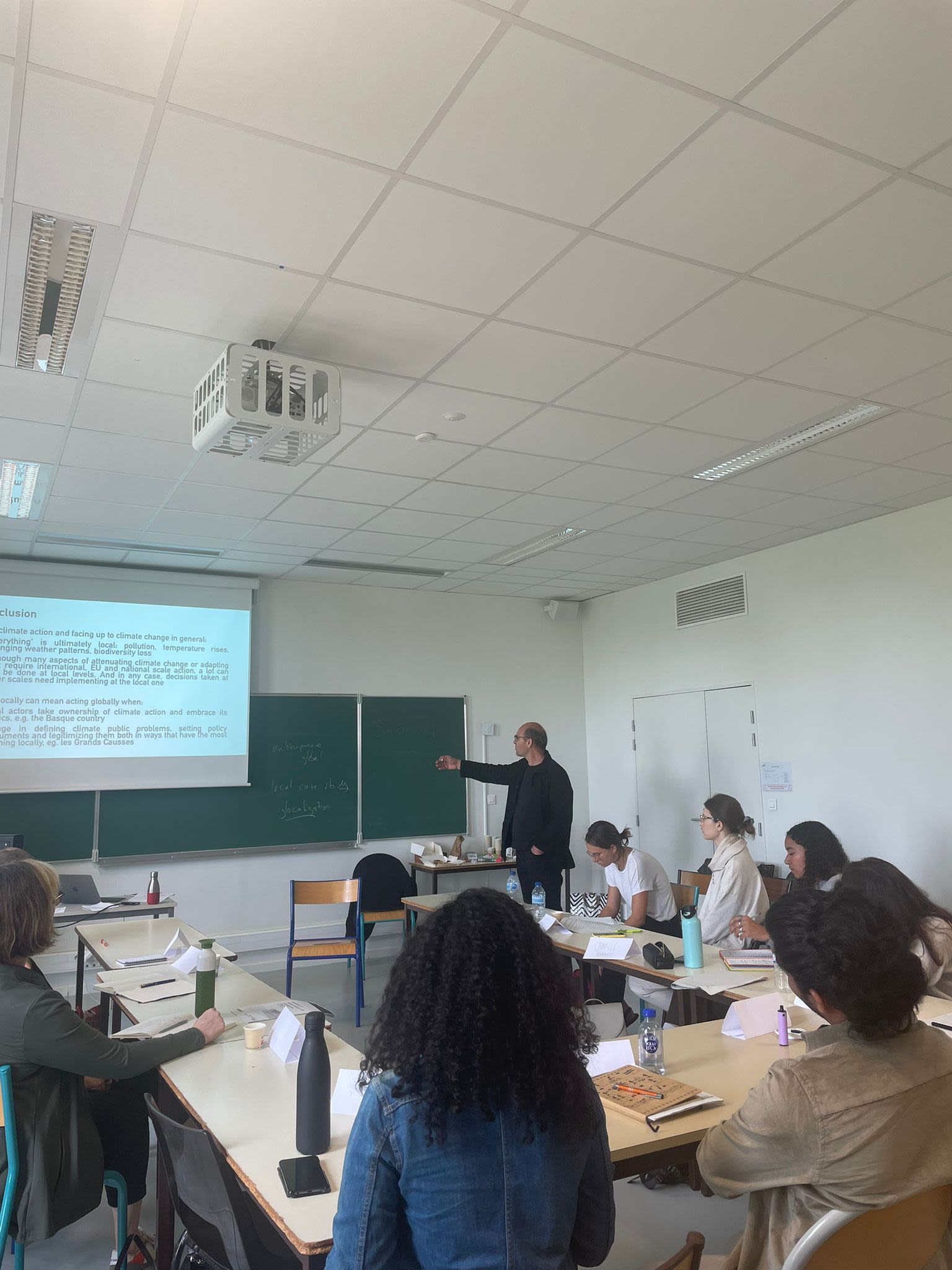My ENLIGHT Experience – Audrey Walshe

In May 2024, I took part in the ENLIGHT workshop, Introduction to decision making in the Anthropocene facilitated by Dr Caitriona Carter, Senior researcher in Political Science at INRAe and Dr Éric Macé, Professor of Sociology, University of Bordeaux. It was held at the Graduate Research School in the university.
The programme was adapted to doctoral students from all disciplines and based on real-life case studies. Its purpose was to encourage students to rethink and improve their decision-making skills in the context of the current socio-environmental crisis. We met on the first morning and introduced ourselves, presenting our individual thesis projects. Our group had ten students from a variety of ENLIGHT universities and including Ireland (University of Galway), Slovakia (Comenius University), Germany (University of Göttingen), the Netherlands (University of Groningen), Estonia (University of Tartu), Spain (University of the Basque Country) and France (University of Bordeaux). Research areas were diverse, with participants coming from backgrounds such as Law and Policy-making, Sociology, Irish Studies, Forestry Studies and Photography.
During the three days, we were divided into small groups and covered key issues related to the concept of the Anthropocene. We were invited to consider how the concept changes our understanding of and relation to Time, Space, Nature, Society and Risk. We were encouraged to recognise the diversity of dimensions and stakeholders, as well as pinpoint institutional obstacles prohibiting change in decision-making in our own countries.
After this ‘big-picture thinking’, we were asked to narrow our thinking further and consider how our individual disciplines have contributed to the Anthropocene, how our individual countries have different climate plans, and how different levels of governments are dealing with the same issues. The workshop used case studies which were based on real eco-social issues taking place near the University of Bordeaux, and while the issues were specific to the area, it demonstrated that political dilemmas globally are affected by the Anthropocen,e which in turn requires a rethinking of societal responsibility to balance needs of all living things. The workshop facilitators encouraged the group to rethink temporalities in decision-making, to acknowledge that reactive and passive respect of environmental norms would require acceptance that taking action and making investments in sustaining life must be the new working model.
This workshop was an incredibly rich opportunity which provided me with the ability to identify specific issues at stake in decision-making in an Anthropocene context and give clear examples. It illuminated the various dimensions of decision-making and differentiated between the various parties involved.
Arriving in Bordeaux with some trepidation, taking part in a workshop outside of my area of research, I left with a confidence that postgraduate students are concerned about bigger global issues than can be considered within the confines of individual research. However, to be in a room where wholly different disciplines could get together and break down these very important questions was an incredibly enriching experience.
Words and images thanks to Audrey Walshe, PhD student, School of Geography, Archaeology and Irish Studies.
To learn more about the ENLIGHT European University Alliance and opportunities for students, visit universityofgalway.ie/enlight/




